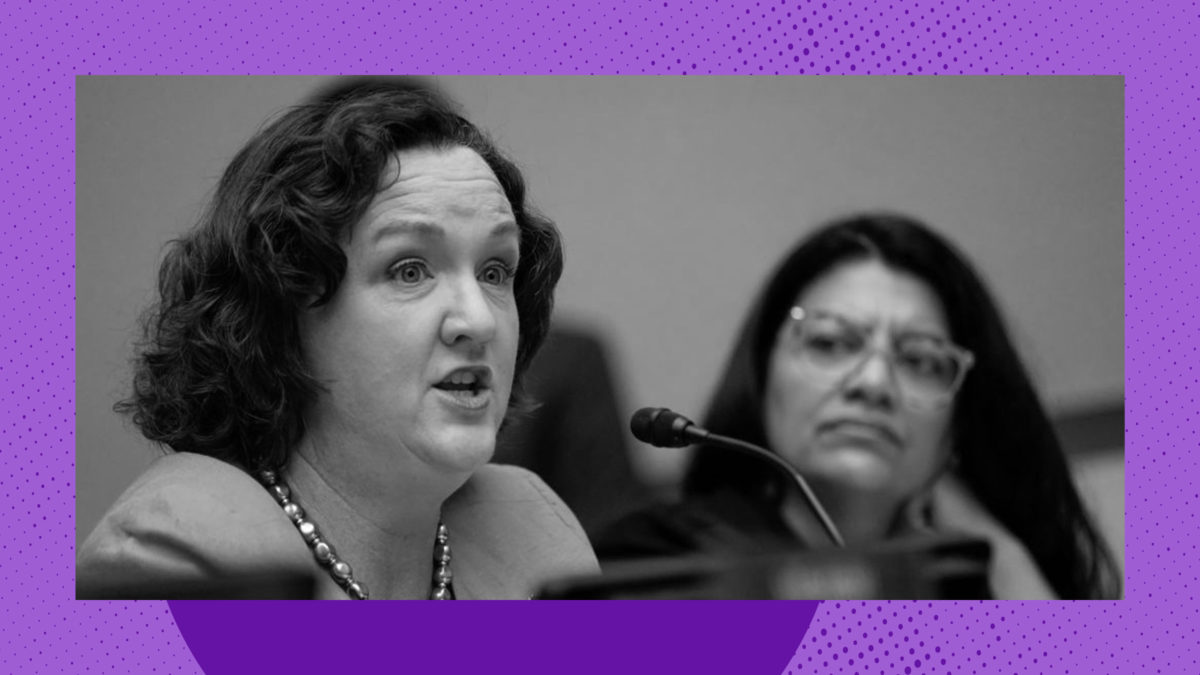The Congressional Progressive Caucus is composed of 100 lawmakers who, per its web site, are “standing up for progressive ideals in Washington and throughout the country.” In January, the CPC formally endorsed the Judiciary Act of 2021, which would expand the Supreme Court by adding four justices to the bench.
“After thoughtful consideration, the Progressive Caucus membership has determined that the urgent work to restore American democracy must include expanding the Supreme Court,” said CPC Chair and Washington Rep. Pramila Jayapal at the time. “I am proud that our Caucus is joining the fight to expand the court and restore balance to the bench.”
Earlier this month, several of these lawmakers renewed their calls to pass the Judiciary Act in light of the Court’s reactionary extravaganza this term, during which the justices (among many other alarming things) overturned Roe v. Wade, dramatically expanded Second Amendment rights, and hollowed out the federal government’s ability to respond to climate change. “We do not have to simply accept the devastation of these rulings,” said Jayapal, alongside New York Rep. Mondaire Jones and Georgia Rep. Hank Johnson, the bill’s original sponsor. “The Constitution created three co-equal branches of government, vesting the people’s elected representatives with the broad authority to check and balance a judiciary that oversteps its mandate.”
The extent to which the Progressive Caucus has “joined the fight” in any meaningful sense, however, is sort of unclear, because as of now, only about half its members have actually added themselves as co-sponsors of the Judiciary Act. Given that public approval of and trust in the Court is falling while interest in Court expansion ticks upward, this apparent reticence to take a position is, to put it generously, puzzling.
Of course, establishment Democrats have long trailed behind their Republican counterparts when it comes to judicial politics: Together, presidential administrations and congressional leaders have neglected the task of confirming progressive judges, scrupulously defended the legitimacy of an institution captured by far-right interests, and steered clear from substantive discussions of Supreme Court reform. If ostensibly progressive lawmakers are as concerned as they claim to be about this conservative supermajority’s extremist agenda, signing their names to the one piece of legislation that would actually do something about it would seem like the least they could do.
Below is a list of every member of the Progressive Caucus who is not a co-sponsor of the Judiciary Act. We will update this list as necessary.
Earl Blumenauer (OR-03)
Suzanne Bonamici (OR-01)
Shontel Brown (OH-11)
Matt Cartwright (PA-08)
Sheila Cherfilus-McCormick (FL-20)
Katherine Clark (MA-05)
Madeleine Dean (PA-04)
Peter DeFazio (OR-04)
Rosa DeLauro (CT-03)
Debbie Dingell (MI-12)
Lloyd Doggett (TX-35)
Dwight Evans (PA-03)
Teresa Leger Fernandez (NM-03)
Lois Frankel (FL-21)
Ruben Gallego (AZ-07)
John Garamendi (CA-03)
Sylvia Garcia (TX-29)
Steven Horsford (NV-04)
Jared Huffman (CA-04)
Sara Jacobs (CA-53)
Hakeem Jeffries (NY-08)
Eddie Bernice Johnson (TX-30)
Ro Khanna (CA-17)
Dan Kildee (MI-05)
Andy Kim (NJ-03)
Brenda Lawrence (MI-14)
Mike Levin (CA-49)
Zoe Lofgren (CA-19)
Kweisi Mfume (MD-07)
Gwen Moore (WI-04)
Joe Morelle (NY-25)
Joe Neguse (CO-02)
Donald Norcross (NJ-01)
Frank Pallone (NJ-06)
Jimmy Panetta (CA-20)
Katie Porter (CA-45)
Jamie Raskin (MD-08)
Lisa Blunt Rochester (DE)
Lucille Roybal-Allard (CA-40)
Sen. Bernie Sanders (I-VT)
Mary Gay Scanlon (PA-05)
Brad Sherman (CA-30)
Adam Smith (WA-09)
Darren Soto (FL-09)
Melanie Stansbury (NM-01)
Lori Trahan (MA-03)
Juan Vargas (CA-51)
Peter Welch (VT)

